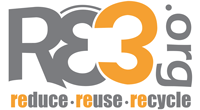Here is the National Recycling Coalition response:
- Recycling pays for itself in many ways, from the direct financial benefits of selling the materials to the many economic and environmental benefits.
- Recycling creates 1.1 million U.S. jobs, $236 billion in gross annual sales and $37 billion in annual payrolls. Recycling creates four jobs for every one job created in the waste management and disposal industries.
- Public sector investment in local recycling programs pays great dividends by creating private sector jobs. For every job collecting recyclables, 26 jobs are created to process the materials and manufacture them into new
products.
- Landfills and incinerators don't pay for themselves; in fact they cost more than recycling programs. Government supports lots of services that the free market wouldn't provide, such as the delivery of running water and electricity.
- If the market were truly free, long-standing subsidiaries that favor virgin materials and landfills would not exist, and recycling could compete on a level playing field.
- Thousands of U.S. companies have saved millions of dollars through their voluntary recycling programs. They wouldn't recycle if it didn't make economic sense.
- Scrap steel has become the steel industry's single largest source of raw material because it is economically advantageous to recycle old steel into new steel.
- For glass manufacturers, recycling makes economic sense because it extends the life of furnaces and reduces energy costs. Energy costs drop by 0.5% for every 1% of cullet used.
- More than 80% of U.S. papermakers use some recovered fiber to make their products.

No comments:
Post a Comment